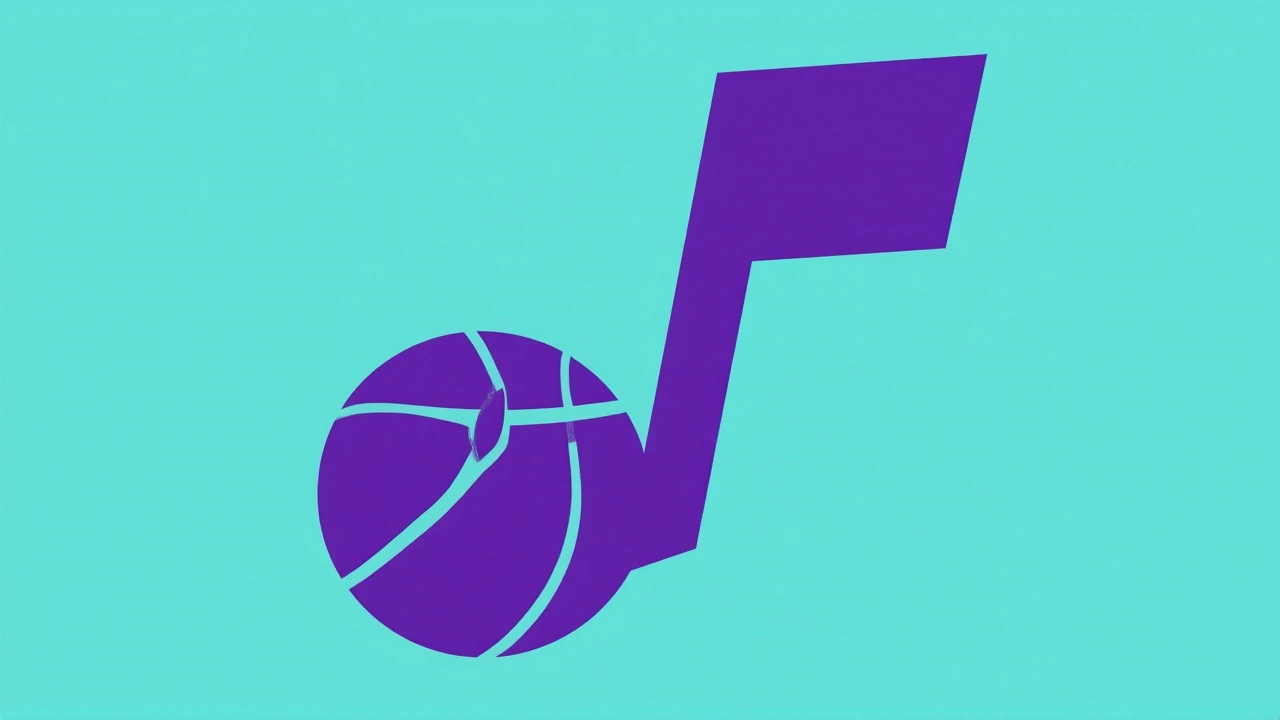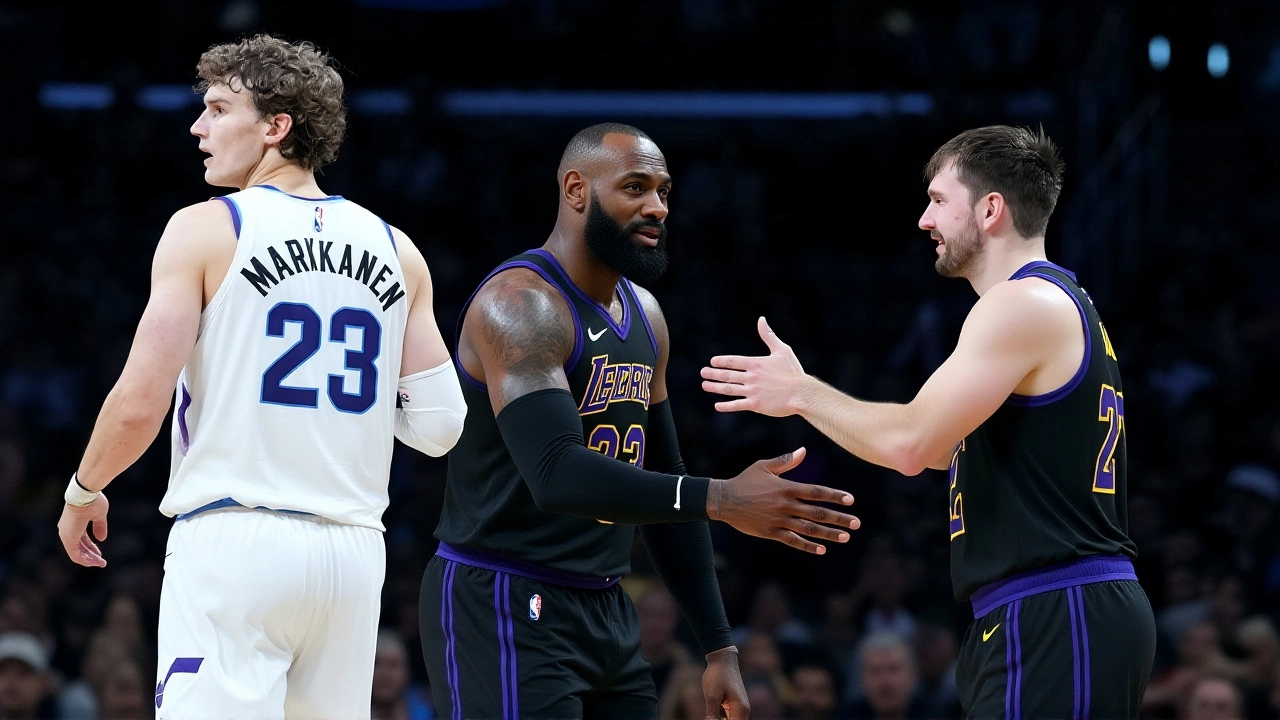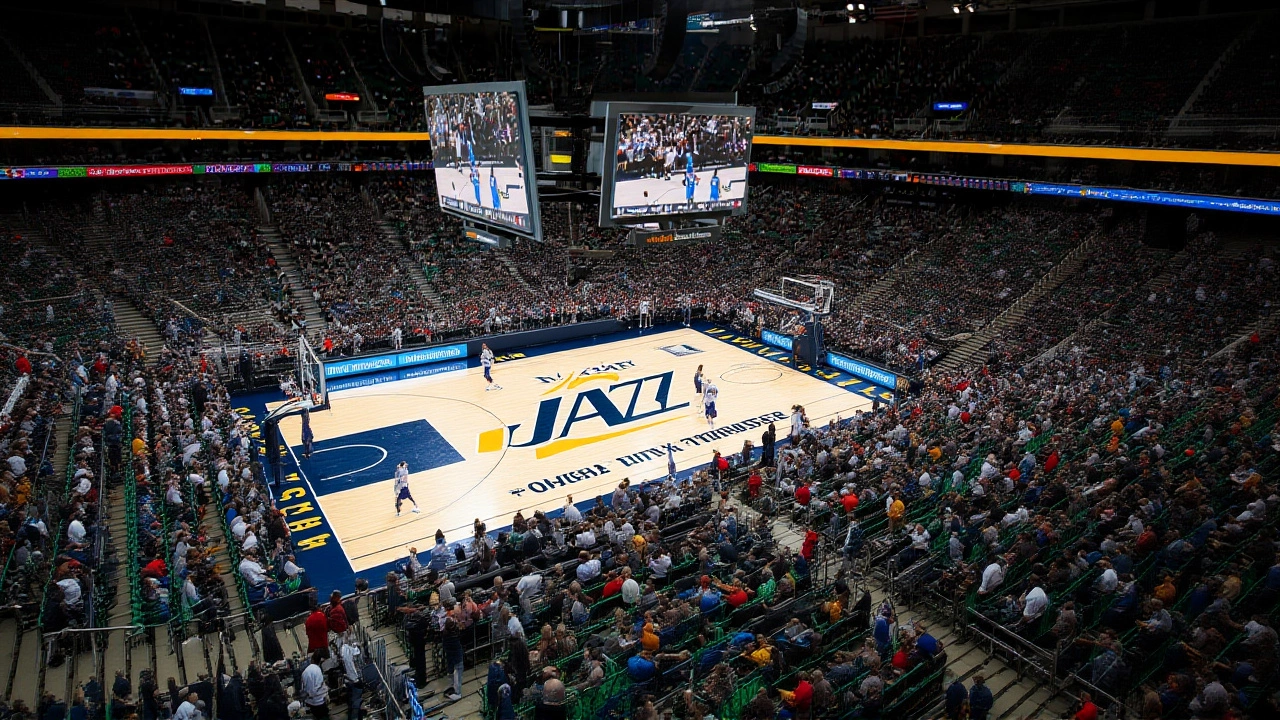On Friday night, November 21, 2025, the Oklahoma City Thunder didn’t just beat the Utah Jazz—they erased them. A 144-112 thrashing at Delta Center in Salt Lake City wasn’t just a win; it was a statement. The defending NBA champions improved to 16-1 on the season, extending their winning streak to eight games, while the Jazz fell to 5-10 and 0-3 in the Emirates NBA Cup. And it all started with a man who’s playing like he’s on a different level: Shai Gilgeous-Alexander. The Thunder’s All-NBA point guard dropped 31 points, 8 assists, and 3 three-pointers, turning what looked like a potential Jazz upset into a one-sided demolition.
The Comeback That Broke the Jazz
At one point, Utah looked unstoppable. They stormed out of the gates, scoring 44 points in the first quarter—the most any team had put up against Oklahoma City all season. By the 6:15 mark, they were up 39-21. Fans in Salt Lake City were already planning their postgame celebrations. But here’s the thing: this isn’t just any team. This is the Thunder, the team that won it all last June, and they don’t panic. They pounce.
The turning point came with 10:21 left in the third quarter. The Jazz still led 84-77. Then, everything changed. Oklahoma City went on a 22-0 run over 5 minutes and 27 seconds. No fouls. No timeouts. Just pure, unrelenting basketball. Shai Gilgeous-Alexander scored 12 of those 22 points, slicing through the Jazz defense like it wasn’t even there. By the time the quarter ended, the Thunder had outscored Utah 43-20. The lead? 99-85. The crowd? Silent. The Jazz? Shell-shocked.
Offense Like a Firehose
The numbers don’t lie. Oklahoma City shot 61.4% from the field and a blistering 62.2% from three-point range—23 of 37 attempts. That’s not luck. That’s precision. Isaiah Joe was surgical, hitting 5 of 6 field goals, including 4 of 5 from deep for 16 points. Jaylin Williams? A revelation. He set a season-high with 15 points, all on five three-pointers. The Thunder didn’t just shoot well—they made the Jazz look slow, out of position, and mentally defeated.
And then there was the defense. 28 turnovers forced. 44 points scored off those mistakes. Nine of those turnovers came in the third quarter alone, when Oklahoma City’s pressure turned into chaos. The Jazz, who pride themselves on ball movement and rhythm, looked like they were playing through molasses. Keyonte George, Utah’s bright spot with 20 points and 8 assists, had three of his six turnovers in that devastating third quarter. Lauri Markkanen, their best offensive weapon, finished with 19 points but was constantly doubled, forced into tough shots, and visibly frustrated.

Why This Matters Beyond the Box Score
This wasn’t just about winning. It was about identity. The Thunder are now the league’s best third-quarter team, outscoring opponents by an average of 11.4 points in the period. They’ve turned the third quarter into their signature weapon—a psychological reset button. When opponents think they’re in control, Oklahoma City flips the script. It’s not just talent. It’s temperament. It’s poise under pressure. And it’s exactly what championship teams do.
The Jazz, meanwhile, are in freefall. They’ve lost 8 of their last 9 games. Their defense ranks 27th in the league. Their bench is a question mark. And in the Emirates NBA Cup, they’re already eliminated from contention. This loss wasn’t just another defeat—it was a mirror. They’re not just losing games. They’re losing confidence.
Meanwhile, the Thunder’s schedule doesn’t get easier. But they’re not just surviving—they’re thriving. Their 16-1 record is the best in the NBA. Their net rating is +12.8, the highest in the league. And Gilgeous-Alexander? He’s averaging 32.1 points per game since the season opener. He’s not just the best player on the court. He’s the reason this team believes they can repeat.

What’s Next for Both Teams
The Thunder’s next Emirates NBA Cup game is scheduled for November 25 in Phoenix. A win there locks them into the knockout round. With their current form, they’re heavy favorites to win the entire tournament—and that’s saying something, given the talent in the Western Conference.
For the Jazz, it’s about survival. Their next game is November 26 against the Denver Nuggets. But this isn’t just about wins anymore. It’s about rebuilding trust. Between the front office, the coaching staff, and the locker room, something has to change. Otherwise, another rebuilding year looms—and fast.
The betting lines told a story too. The Thunder were -17.5 point favorites. They won by 32. The over/under was 234.5. The final score? 256. People who bet on the Thunder to cover and the over? They cashed in. Those who bet against them? Well, they learned the hard way: don’t underestimate this Thunder team.
Frequently Asked Questions
How did Shai Gilgeous-Alexander’s performance compare to his previous games this season?
Gilgeous-Alexander’s 31-point night matched his season average of 32.1 points, but this was his most efficient game yet: 12-of-18 shooting (66.7%), 3-of-5 from three, and 4-of-4 from the line. He also added 8 assists, tying his season high. This was his fifth 30-point game in 17 outings, and his third with 8+ assists—showing he’s not just scoring, but orchestrating at an MVP level.
Why did the Jazz collapse in the third quarter?
Utah’s offense stalled as Oklahoma City switched to a full-court press, forcing 9 turnovers in the third quarter alone. Keyonte George and Lauri Markkanen were double-teamed relentlessly, and Utah’s role players failed to step up. The Jazz went 2-of-12 from three in the period and missed all five of their free throws. The Thunder’s defensive intensity broke their rhythm, and they never recovered.
What’s the significance of the NBA Cup for teams like the Thunder and Jazz?
The Emirates NBA Cup is a mid-season tournament that offers $1 million to each player on the winning team and carries seeding implications for the playoffs. For the Thunder, it’s a chance to build momentum and chemistry. For the Jazz, it’s a rare opportunity to prove they’re not a lost cause. But with a 0-3 record, Utah is already out of contention—making this a season-defining moment for their rebuilding efforts.
How does Oklahoma City’s 16-1 start compare to past championship teams?
The Thunder’s 16-1 start is the best through 17 games since the 2015-16 Golden State Warriors (24-1). Only four teams in NBA history have started better: the 1995-96 Bulls (22-1), the 1985-86 Celtics (21-1), the 1971-72 Lakers (20-1), and the 2016-17 Warriors (17-1). All four went on to win the title. History doesn’t guarantee anything—but it’s a powerful signal.
What’s the biggest concern for the Thunder moving forward?
Depth. While Gilgeous-Alexander, Joe, and Williams are firing on all cylinders, the Thunder’s bench rotation still relies heavily on role players like Josh Giddey and Ousmane Dieng. If injuries hit—or if defenses start keying on their stars—they’ll need more consistent scoring from their second unit. They’ve been lucky so far, but the NBA grind is long.
Can the Jazz turn things around this season?
It’s possible, but unlikely without major changes. Their defense is broken, their offense is too reliant on Markkanen and George, and their coach, Will Hardy, has lost control of the locker room. Front office sources say trade talks are underway, but with no high draft picks until 2027, their path to relevance is narrow. This season may be about development, not wins.
